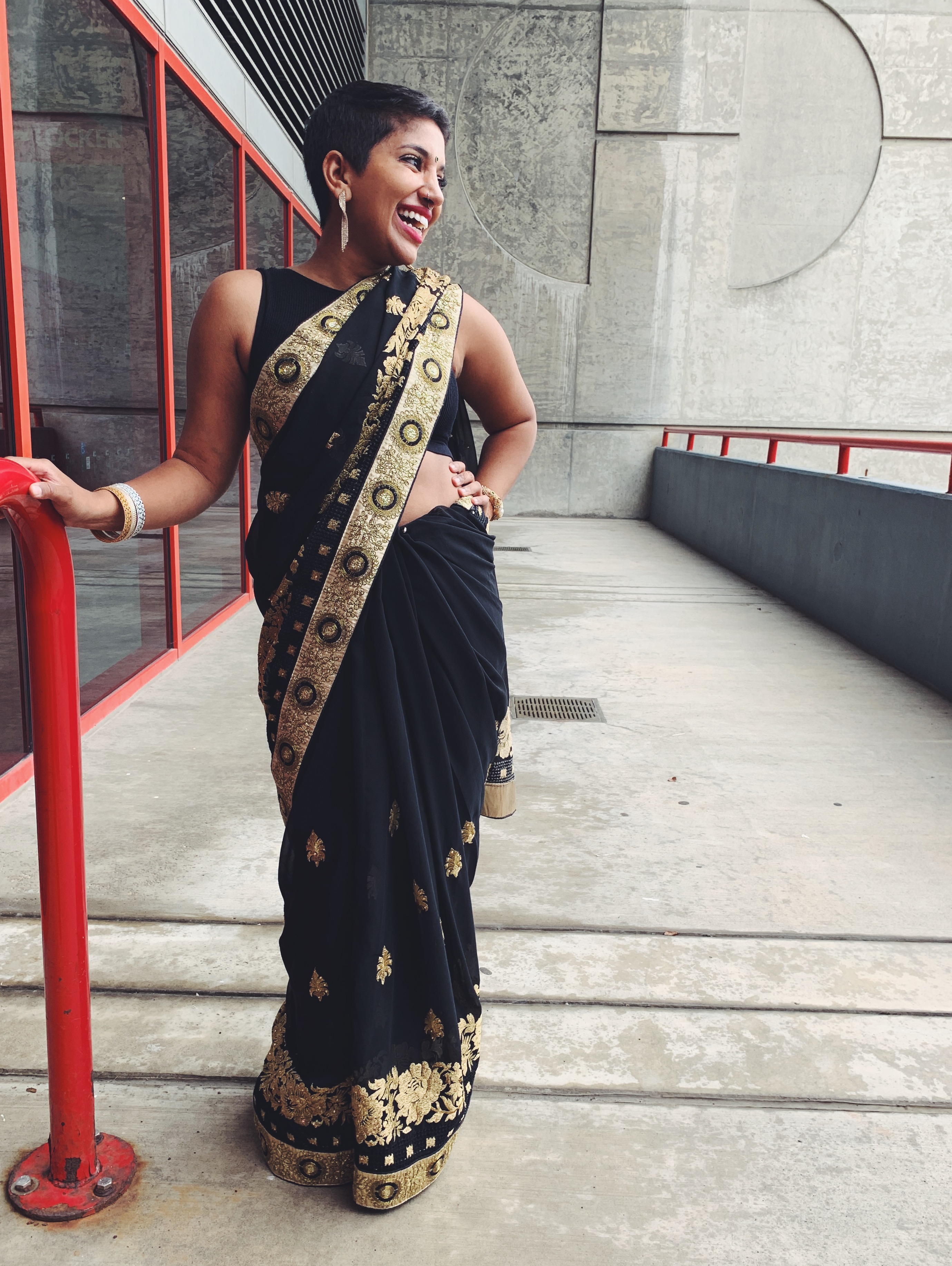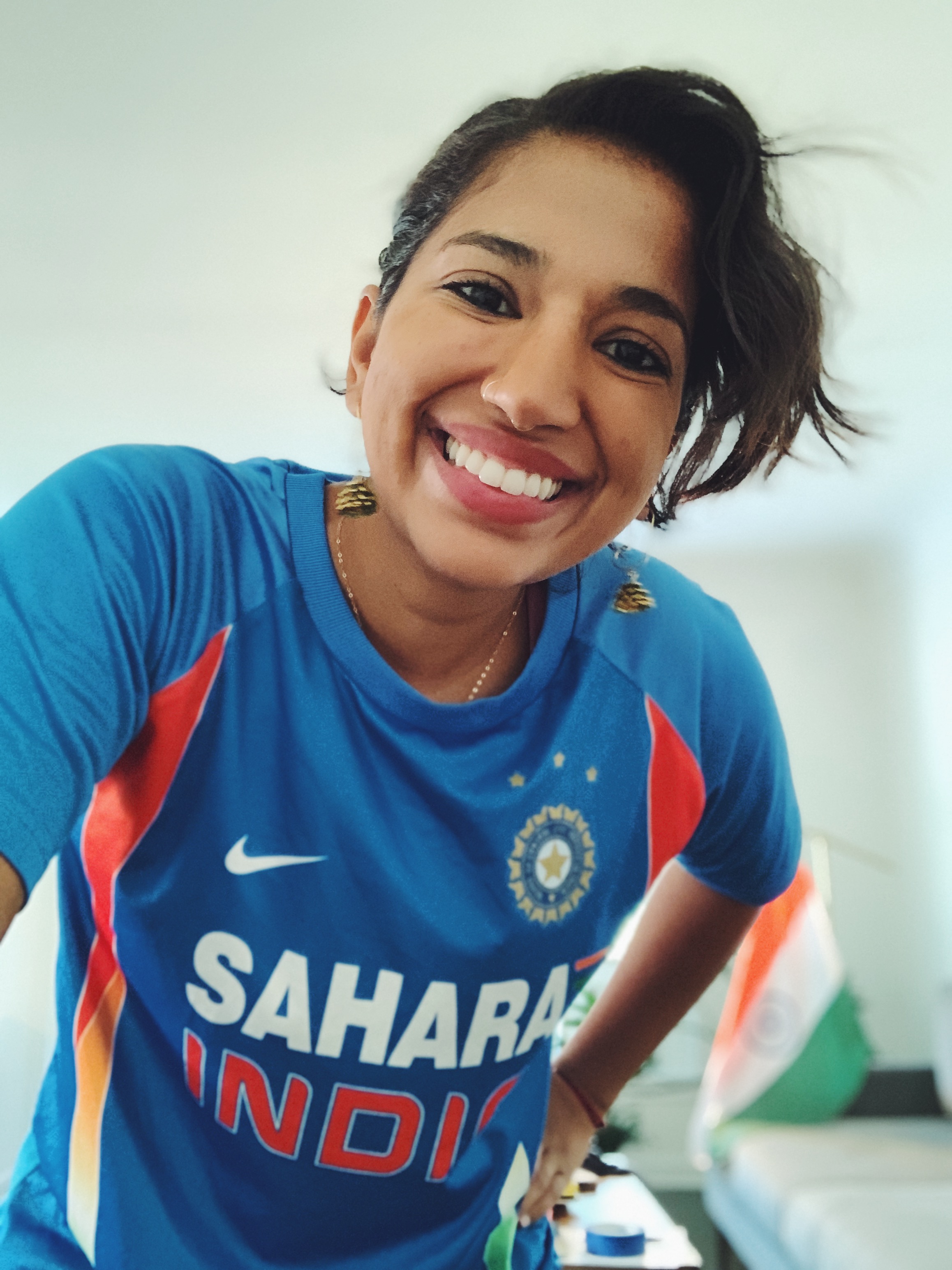First-gen graduate snags State Department Critical Language Scholarship to study Hindi
When Liz George began her Critical Language Scholarship Program this summer, she couldn't speak a full sentence in Hindi. That ended in eight short weeks of long hours, hard work, studying and conversing with her language partner in India, all thanks to a special scholarship sponsored by the U.S. Department of State
The CLS scholarship is a highly competitive program that provides American college and university students with a summer study abroad opportunity to learn languages essential to America's engagement with the world. It is part of a U.S. government effort to expand dramatically the number of Americans studying and mastering critical foreign languages.
"The Critical Language Scholarship program is a unique and prestigious language experience," says Study Abroad and Global Studies Associate Director Margaret Ogg, who assisted George with her application essays. "It is both a scholarship and a study abroad program in one award. Students who participate in this program receive language acquisition in 8-10 weeks that would take an academic year to accomplish.

"If students are interested in any position in national security or foreign service, this award would put them at the top of the list of candidates. Learning and knowing one of the languages taught in the program would make them an enviable candidate in most business industries. Some languages don't require that students have any experience learning the language ahead of time, others require a few years of language training."
George hopes to combine the knowledge she's gained from her scholarship with her career in social work, ideally at an NGO in India. In addition to the CLS improving her career options, George said it provided an opportunity to reconcile aspects of herself that she had been exploring.
"Growing up, my mom's side of the family always preferred to speak in Hindi over English," she says. "I couldn't speak Hindi or join in on those conversations, so I've always felt a little bit on the outside. In the past year or so, I've been exploring my identity, and being Desi-American and a woman has been a big part of that. I've spent so much of my life blending in with Eurocentric norms but learning Hindi has helped me identify with one facet of my identity and heritage. It's made me more confident to rediscover important pieces of my life.
George discovered the program while studying Hindi at a local temple. She was initially unsure if she would be the right fit because she had spent a lot of time in and out of school pursuing different job paths. "Initially, I was in disbelief when I found out I was selected," says George. "But it was very affirming to me to have a program look at more than just my academic record and view me as a comprehensive human being. It was really exciting."
George entered the CLS program shortly after graduating in May with her master's in social work. She was inspired to go into social work after she spent a year working as a substitute teacher at a juvenile detention center.
To apply for the program, George had to write essays on various topics from what she had done in the past to study the language to examples of being resilient.
"Applicants are solely judged on their essays, so it is crucial for students to construct them carefully and thoughtfully," says Ogg. "Liz came to me late summer/early fall to discuss the direction she should go in with her essays. After she completed the first draft, I provided her with feedback, for at least one revision prior to submission."

Originally, the program was going to send scholars to the country corresponding to their language to learn in person. When the pandemic struck, classes were moved online to Zoom.
"At first, I was a bit hesitant of the idea of sitting at a computer for three and a half hours, but the program was run so well that any fears I had dissipated within the first day. It never felt like a lecture; we were in an intimate setting and constantly talking to each other in Hindi. I give a lot of credit and respect to our teachers who were kind, encouraging and patient with us. Every day I woke up looking forward to class. "
Instruction was provided by the American Institute of Indian Studies. Grammar was a big part of the course, but equally important was learning about the culture of India and the regions where Hindi is spoken.
"I've been able to have conversations with my mom in Hindi for the first time," says George. "It's been a really special bonding experience. I can sit down and have an entire conversation with her, it's amazing to be able to connect with my family in this way. Also, when I go to North India, I can finally use Hindi instead of speaking English. That's really exciting to me.
"As a first-generation immigrant, I've always felt on the outside of both American and Indian culture, sort of straddling both worlds, and this program has served as a bridge between the two. It's something that makes me proud to be who I am. I am not just my American nationality or my Indian heritage, I'm so much more than one singular thing, and I hope to bring that to other Desi-American teenagers and young people who are also exploring their multi-dimensional identities."
By Jacob Stocking, OIP communications associate
The Office of International Programs leads Wayne State's global engagement by creating opportunities that foster international education and research, facilitate the exchange of individuals and ideas that promote global competencies and citizenship, and provide resources that support the expansion of the university's global agenda. Follow us @WayneOIP.